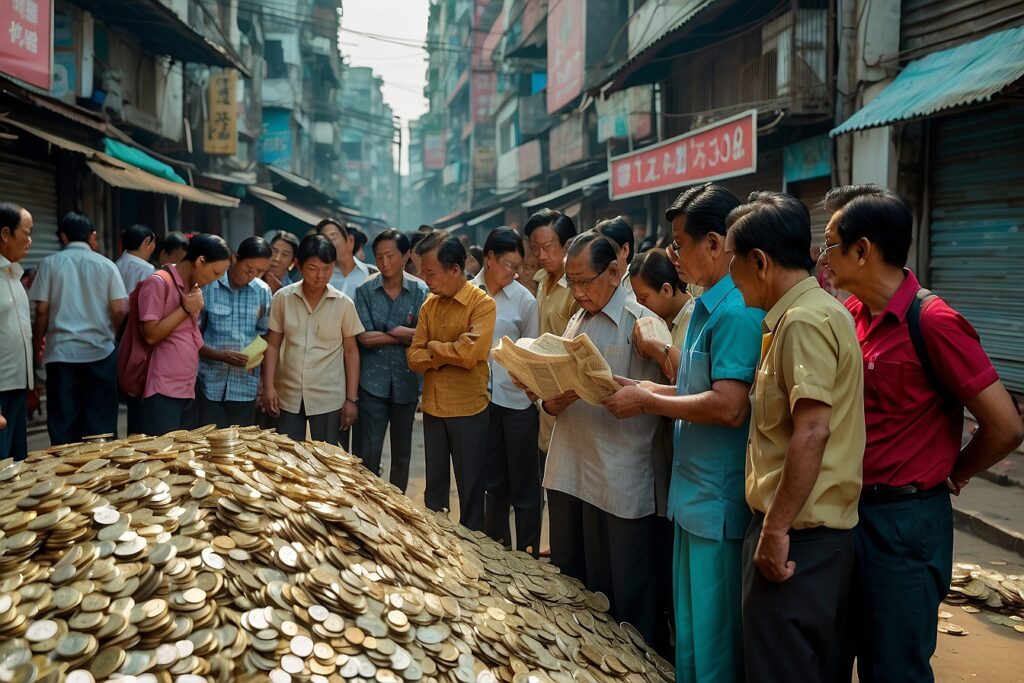Navigating an Unprecedented Cash Crunch: Challenges and Strategies for Asia Hotels

The hotel industry finds itself in a serious, albeit not insurmountable, predicament amid the ongoing COVID-19 pandemic.
Compared to other segments of real estate, hotels have borne a disproportionate brunt of the crisis. National lockdowns, stringent travel restrictions, and the virtual standstill of air travel have drained finances from hotels worldwide.
Many properties were compelled to shut down for extended periods and have since reopened gradually, albeit at significantly reduced capacities.
In response to dwindling revenues or forced closures, hotel owners have resorted to cost-cutting measures and sought government assistance where available.
However, despite these efforts, many hotels in Asia are operating at gross operating losses as they grapple with a worsening cash crunch.
While prevailing sentiments in the industry may lean towards pessimism, it’s essential to acknowledge that Asia’s hotel sector entered this crisis from a position of relative strength.
Moreover, hotel owners have been spurred to explore innovative solutions beyond mere cost reduction. They are actively seeking alternative financing avenues and revenue streams to address the persistent cash flow challenges expected to persist in the foreseeable future.
While challenges loom on the horizon for the Asian hotel industry, there are emerging themes illustrating how investors are adapting and reshaping the sector both during and post-COVID-19.
Reallocation of Capital: Navigating the Cash Crunch in Asia’s Hotel Sector
Amid the ongoing pandemic, the hotel sector in Asia faces an inevitable reallocation of capital. The economic fallout from the crisis is poised to impact certain hotel owners, particularly those with higher leverage, limited cash reserves, or investments across multiple affected assets and industries.
Consequently, some owners will find themselves compelled to reassess their portfolios. This may entail strategic divestments of non-core assets and potentially distressed sales where financial obligations become untenable.
On the flip side, there remains a robust appetite among investors to provide relief to hotel owners grappling with cash flow challenges. Despite the upheaval of COVID-19, last year witnessed record capital allocations for real estate in Asia.
Investors, particularly in private equity, high net worth, and conglomerates, are actively seeking hotel deals. Much of this capital, especially from private equity firms, remains untapped, indicating a continued interest in potential transactions.
Regardless of investor interest, owners and operators are likely to maintain a focus on reducing fixed costs. Prudent cost management has been a hallmark of the industry’s response to COVID-19, fostering resilience that is appealing to incoming investors. However, in the hospitality sector, there is a delicate balance to strike between cost management and preserving the guest experience, crucial for brand loyalty and asset recovery.
In addition to capital reallocation and cost management, a reduction in supply pipelines is anticipated in the near term. This trend may be more pronounced in emerging markets, which previously boasted high development pipelines but are now among the hardest-hit hotel markets.
Owners and developers in these regions, facing tighter liquidity, may encounter challenges in securing financing for new projects. Therefore, the sustainability of the industry hinges on a combination of investor support and prudent cost management strategies.
Repricing Dynamics in the Hotel Sector
Amid the ongoing crisis, the repricing of hotel assets is a key consideration for investors across different segments. Private equity firms, known for their buy-fix-sell approach, typically seek the largest discounts compared to pre-COVID levels.
Conversely, family offices and conglomerates, with longer holding patterns, still anticipate discounts but are generally willing to pay more than private equity buyers for certain assets.
Presently, there exists a significant pricing gap in the market. Many owners are adopting a wait-and-see approach, hoping to weather the crisis, particularly with banks offering some flexibility.
However, as time progresses, we anticipate pricing expectations to moderate towards the end of 2020 and into 2021.
Owners who are unable to find solutions, including accessing alternative debt providers, may be compelled to take action.
In mature markets like Japan, we expect pricing adjustments to occur more swiftly, with properties potentially coming to market sooner.
Macro fundamentals in key markets such as China, Japan, and Singapore are positioned to facilitate a faster recovery, prompting investors to prioritize allocations in these markets as recovery prospects improve.
Innovative Approaches for the Medium-Term Recovery

While facing a challenging landscape, there are notable exceptions within the regional hotel industry. Singapore stands out as a unique case, where government-led quarantine and crisis management initiatives have generated significant demand for hotel rooms. This has helped offset the traditional guest demand shortfall and the subdued contribution from staycation offerings.
Beyond Singapore, the resurgence of staycations will play a crucial role in the recovery narrative of Asia’s hotel industry, although its impact will vary across different markets.
Countries like China and Japan, which historically relied on robust domestic tourism with considerable spending power, are expected to benefit the most from the staycation trend.
Conversely, nations such as Thailand and Vietnam, which traditionally catered to a high volume of domestic tourists, may not experience as strong a rebound due to the limitations of domestic spending power compared to that of foreign arrivals.
Looking ahead, the Asian travel sector is poised for a robust rebound, particularly with the burgeoning middle class in the region beginning to explore travel opportunities.
Countries like India, Indonesia, and Vietnam, with their large populations, are anticipated to contribute significantly to the existing demand. The question now revolves more around the timing of recovery rather than the mechanisms behind it.
Undoubtedly, the recovery process will be gradual and vary in pace across different regions. However, with strategic capital reallocation, innovation, and prudent cost management, there is optimism that the hotel industry can navigate the current cash crunch with confidence and patience.



